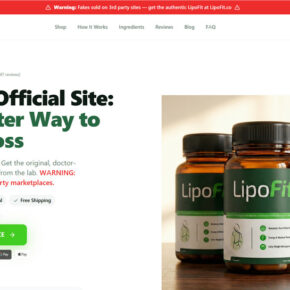Facebook has become a breeding ground for scams, with fraudsters constantly coming up with new ways to deceive unsuspecting users. One such scam that has gained popularity in recent years is the ‘Win A Tiny House’ Facebook scam. This article aims to shed light on what these scams are, how they work, what to do if you have fallen victim, and provide valuable insights to protect yourself from falling prey to such scams.

What are ‘Win A Tiny House’ Facebook Scams?
‘Win A Tiny House’ Facebook scams are deceptive schemes that lure users into believing they have a chance to win a luxurious tiny house. These scams often use enticing images and catchy captions to grab the attention of users. They typically require users to like, share, and comment on the post to enter the contest. In some cases, users may also be asked to provide personal information or complete surveys.
How do ‘Win A Tiny House’ Facebook Scams Work?
The scammers behind these schemes aim to exploit the trust and excitement of Facebook users who dream of owning a tiny house. They create fake Facebook pages or profiles that appear legitimate and post enticing images of beautiful tiny houses. These posts are designed to go viral quickly, as users are encouraged to like, share, and comment on them to enter the contest.
Once the post gains traction and reaches a significant number of users, the scammers start implementing their malicious tactics. They may redirect users to external websites that require them to provide personal information or complete surveys. These websites are often designed to collect sensitive data, such as names, addresses, phone numbers, and even credit card details.
In some cases, clicking on the post or participating in the contest may lead users to download malware or viruses onto their devices. This can result in compromised security, data breaches, and financial loss.
What to Do if You Have Fallen Victim?
If you have fallen victim to a ‘Win A Tiny House’ Facebook scam, it is crucial to take immediate action to protect yourself and minimize the potential damage.
1. Report the Scam
The first step is to report the scam to Facebook. You can do this by clicking on the three dots in the top-right corner of the post and selecting “Report post.” Facebook has dedicated teams that investigate and take action against scams reported by users.
2. Change Your Password
Changing your Facebook password is essential to prevent further unauthorized access to your account. Choose a strong, unique password that includes a combination of letters, numbers, and special characters.
3. Scan for Viruses and Malware
It is crucial to scan your device for viruses and malware to ensure your security. We recommend using Malwarebytes Free, a trusted and effective antivirus software that can detect and remove malicious software from your device.
4. Monitor Your Accounts
Keep a close eye on your bank accounts, credit cards, and other online accounts for any suspicious activity. If you notice any unauthorized transactions or changes, contact your bank or the respective service provider immediately.
5. Educate Yourself and Others
Take this experience as an opportunity to educate yourself and others about online scams. Share your story with friends and family to raise awareness and prevent them from falling victim to similar scams.
Technical Details of ‘Win A Tiny House’ Facebook Scams
Understanding the technical aspects of these scams can help users identify and avoid falling victim to them. Here are some key technical details:
- Scammers often create fake Facebook pages or profiles that closely resemble legitimate ones. They may use similar names, logos, and images to deceive users.
- The posts associated with these scams often contain enticing images of luxurious tiny houses to attract users’ attention.
- Clicking on the post or participating in the contest may lead users to external websites that collect personal information or distribute malware.
- Scammers may use social engineering techniques to manipulate users into sharing personal information or completing surveys.
Statistics on ‘Win A Tiny House’ Facebook Scams
While it is challenging to obtain accurate statistics on the prevalence of ‘Win A Tiny House’ Facebook scams, the following data provides insights into the broader landscape of online scams:
- In 2020, the FBI’s Internet Crime Complaint Center (IC3) received over 791,790 complaints related to online scams, resulting in losses exceeding $4.2 billion.
- According to a survey conducted by the Better Business Bureau (BBB), sweepstakes and lottery scams were the second most common type of scam reported in 2022, with victims losing an average of $500.
- Facebook reported removing over 1.3 billion fake accounts between October and December 2022, highlighting the scale of fraudulent activities on the platform.
Summary
‘Win A Tiny House’ Facebook scams are deceptive schemes that exploit users’ desire to win a luxurious tiny house. Scammers create fake Facebook pages or profiles, post enticing images, and encourage users to like, share, and comment on the posts. These scams can lead to the collection of personal information, malware infections, and financial loss. If you have fallen victim, it is crucial to report the scam, change your password, scan for viruses and malware, monitor your accounts, and educate yourself and others. By staying vigilant and informed, you can protect yourself from falling prey to such scams and help create a safer online environment.


![How to Remove OrbitFind Search [Virus Removal Guide] 5 ProtectedSearch Search Virus](https://malwaretips.com/blogs/wp-content/uploads/2018/12/ProtectedSearch-Search-290x190.jpg)

